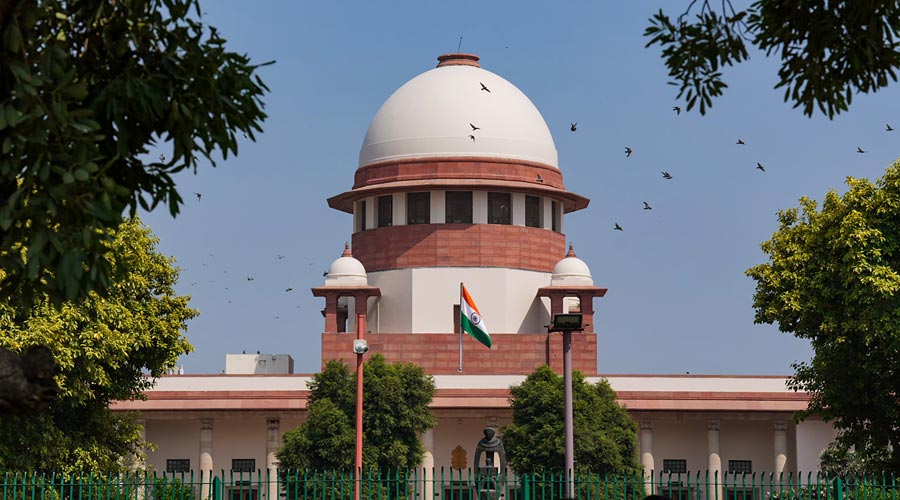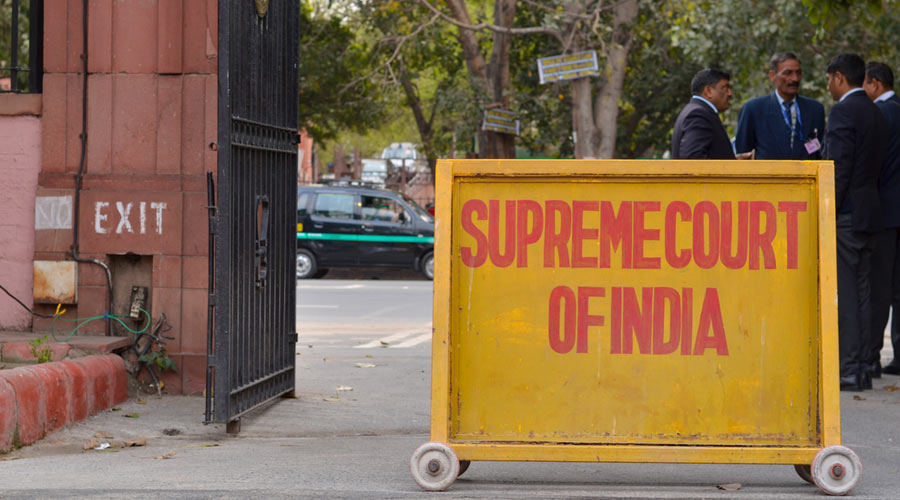A five-judge constitution bench on Monday ruled that the Supreme Court can exercise its extraordinary powers under Article 142 of the Constitution to grant divorce on the ground of “irretrievable breakdown of marriage”.
It said the apex court can also waive the statutory six-month waiting period before a divorce decree can be issued, and quash all ancillary proceedings, including criminal proceedings, connected with the matrimonial dispute in question.
However, lower courts cannot grant divorce on the ground of “irretrievable breakdown of marriage”, waive the waiting period or quash related criminal proceedings. Article 142 of the Constitution empowers the top court, and the top court alone, to pass any decree, order, judgment or direction to render complete justice to a party or parties.
The bench of Justices Sanjay Kishan Kaul, Sanjiv Khanna, Abhay S. Oka, Vikram Nath and J.K. Maheshwari passed the verdict while answering a reference made in 2010 by a two-judge bench.
That bench had questioned the correctness of two earlier two-judge Supreme Court rulings that, exercising their powers under Article 142, dissolved certain marriages on the ground of “irretrievable breakdown of marriage”, which is otherwise not contemplated under the Hindu Marriage Act, 1955.
“This… court, in exercise of power under Article 142(1) of the Constitution of India, has the discretion to dissolve the marriage on the ground of its irretrievable breakdown. This discretionary power is to be exercised to do ‘complete justice’ to the parties, wherein this court is satisfied that the facts established show that the marriage has completely failed and there is no possibility that the parties will cohabit together, and continuation of the formal legal relationship is unjustified,” the verdict, authored by Justice Khanna, said. “The court, as a court of equity, is required to also balance the circumstances and the background in which the party opposing the dissolution is placed.”
The judgment added: “We hold that the power to do ‘complete justice’ is not fettered by the doctrine of fault and blame, applicable to petitions for divorce under Section 13(1)(i-a) of the Hindu Marriage Act. As held above, this court’s power to dissolve marriage on settlement by passing a decree of divorce by mutual consent, as well as quash and set aside other proceedings, including criminal proceedings, remains and can be exercised.
“This question as to the power and jurisdiction of this court under Article 142(1) of the Constitution of India is answered… holding that this court can depart from the procedure as well as the substantive laws, as long as the decision is exercised based on considerations of fundamental general and specific public policy.”
Justice Khanna, however, cautioned that the parties to matrimonial disputes should not be allowed to circumvent procedure by directly approaching the Supreme Court for relief. That is, they must first go to matrimonial courts and appellate courts like the high courts.
Under Section 13B(2) of the Hindu Marriage Act, 1955, the parties to a matrimonial dispute can seek divorce only after undergoing a minimum cooling-off period of six months, meant for introspection and possible attempts at reconciliation.












